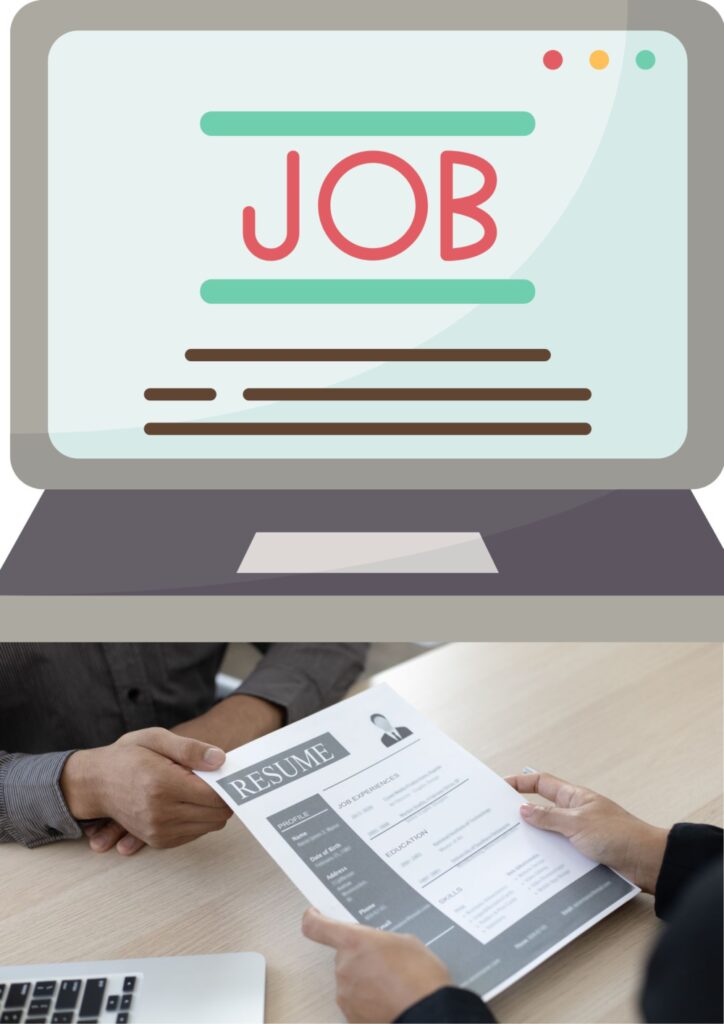Preparing for a job interview can feel overwhelming, but having a clear plan for both the questions and answers can help you succeed. Whether you’re the interviewer looking for good questions to ask or a candidate preparing for common interview questions and answers, this guide covers 70 job interview questions with detailed answers to help you shine.
Common Interview Questions and Answers
1. Can you tell me about yourself?
Answer: I am [your role] with [X years] of experience in [industry]. My expertise lies in [specific skills or accomplishments], and I’m passionate about driving results, as seen in [specific example].
2. What are your strengths?
Answer: My key strengths include analytical thinking, effective communication, and leadership. For example, I led a cross-functional team that delivered a complex project ahead of schedule.
3. What are your weaknesses?
Answer: I tend to take on too much responsibility. However, I’m working on delegating effectively and have seen improvements by trusting my team more.
4. Why do you want to work for our company?
Answer: I admire your company’s commitment to [specific value or goal]. Joining your team aligns with my career goals and allows me to contribute to [specific project or initiative].
5. Where do you see yourself in five years?
Answer: I aim to grow into a leadership role where I can contribute strategically and mentor a team, adding value to the organization.
Good Questions to Ask in an Interview About Teamwork
6. How do you handle conflicts in a team?
Answer: I address conflicts by fostering open communication and finding solutions that benefit the team. For instance, I mediated a disagreement by focusing on common goals, ensuring a productive outcome.
7. Can you describe a time you worked in a team?
Answer: During [specific project], my team collaborated on [specific task], and I ensured smooth communication by scheduling regular check-ins, leading to timely project completion.
8. What role do you usually take in a team?
Answer: I often take on an organizer or leader role, ensuring that tasks are clearly defined and progress is tracked effectively.
9. How do you motivate your team members?
Answer: I motivate team members by recognizing their contributions and aligning their strengths with tasks they enjoy. This creates a positive and productive environment.
10. How do you ensure everyone contributes equally in a team setting?
Answer: I allocate tasks based on individual strengths and encourage collaboration. Regular updates help ensure accountability and balance workloads.
Leadership Job Interview Questions
11. What is your leadership style?
Answer: My leadership style is collaborative. I encourage team input and ensure everyone has the resources they need to succeed.
12. Can you describe a successful initiative you led?
Answer: I led a [specific project/initiative] that improved [specific metric] by [percentage or amount]. It involved innovative problem-solving and team coordination.
13. How do you handle underperforming team members?
Answer: I identify the root cause, provide constructive feedback, and create a development plan with clear goals to help them improve.
14. How do you manage multiple projects simultaneously?
Answer: I use prioritization techniques like setting deadlines, delegating tasks, and leveraging project management tools such as [specific tool] to stay organized.
15. Can you share a challenging leadership situation you faced?
Answer: During [specific situation], I navigated conflicting team priorities by fostering open communication and aligning objectives. This ensured the project stayed on track.
Common Interview Questions About Problem-Solving
16. How do you approach problem-solving?
Answer: I break problems into manageable parts, research solutions, and evaluate the best approach. For example, I resolved [specific issue] by implementing [specific solution].
17. Can you share an example of a problem you solved?
Answer: In [specific project], I addressed a production delay by reorganizing resources and optimizing schedules, leading to on-time delivery.
18. How do you handle tight deadlines?
Answer: I focus on prioritization and delegation, while maintaining clear communication with stakeholders to deliver quality work efficiently.
19. What’s the most difficult decision you’ve made in your career?
Answer: I had to decide between [two conflicting priorities]. After consulting with my team and evaluating options, I chose [specific decision], which resulted in [positive outcome].
20. How do you handle uncertainty?
Answer: I rely on data, consult with colleagues, and remain flexible to adjust plans as needed, ensuring progress even in unpredictable situations.
Questions About Work Ethic and Adaptability
21. How do you manage stress?
Answer: I manage stress by staying organized, setting realistic goals, and practicing mindfulness. This helps me maintain focus and productivity.
22. How do you adapt to changing priorities?
Answer: I reassess priorities, communicate changes to stakeholders, and reallocate resources to ensure alignment with new goals.
23. What motivates you in your work?
Answer: Delivering impactful results and contributing to the organization’s success motivates me to give my best effort.
24. How do you handle constructive criticism?
Answer: I value constructive criticism as a tool for growth. After receiving feedback on [specific area], I took steps to improve, leading to better performance.
25. Can you share a time when you had to learn a new skill quickly?
Answer: I learned [specific skill] within [timeframe] to address a project requirement, enabling the team to meet deadlines effectively.
Final 20 Good Questions to Ask in an Interview with Answers
51. Why do you think you’re the right fit for this role?
Answer: My experience in [specific field], combined with my skills in [specific skills], makes me well-suited to meet the demands of this role.
52. How do you align with our company’s values?
Answer: Your company values of [specific values] resonate with my approach to work, such as prioritizing teamwork and innovation.
53. What are your expectations from this role?
Answer: I expect to contribute meaningfully to [specific area] while continuing to grow professionally through challenging opportunities.
54. How do you contribute to team success?
Answer: By fostering collaboration, ensuring clear communication, and taking initiative, I help teams achieve their goals efficiently.
55. What’s your proudest professional achievement?
Answer: Delivering [specific project] ahead of schedule and exceeding client expectations stands out as my proudest achievement.
56. How do you ensure effective communication in teams?
Answer: I prioritize clarity, active listening, and regular updates, ensuring all team members stay informed and aligned.
57. How do you manage conflicts with stakeholders?
Answer: I address conflicts by understanding stakeholders’ perspectives and finding common ground to resolve issues effectively.
58. What are your career aspirations?
Answer: My aspiration is to grow into a leadership role where I can contribute strategically while mentoring others.
59. How do you measure your success in a role?
Answer: Success is measured by meeting goals, delivering results, and receiving positive feedback from colleagues and stakeholders.
60. What are your suggestions for team improvement?
Answer: Encouraging open communication, providing training opportunities, and recognizing individual contributions can boost team performance.
61. What does a successful day at work look like for you?
Answer: A successful day involves completing high-priority tasks, resolving challenges, and seeing tangible progress toward goals.
62. How do you keep yourself organized?
Answer: I use tools like [specific tool] and maintain a structured schedule to ensure I stay on top of tasks.
63. Can you share a time when you failed and what you learned?
Answer: I missed a deadline early in my career due to poor planning. Since then, I’ve improved my time management and learned to set realistic expectations.
64. How do you stay updated in your field?
Answer: I regularly attend webinars, read industry publications, and engage with professional communities to stay informed.
65. How do you handle repetitive tasks?
Answer: I stay motivated by focusing on the bigger picture and looking for ways to streamline processes for efficiency.
66. What role does feedback play in your work?
Answer: Feedback is crucial for growth. I actively seek it to identify areas for improvement and make necessary adjustments.
67. How do you handle failure?
Answer: I treat failure as a learning opportunity. By analyzing what went wrong, I implement strategies to avoid similar issues in the future.
68. What’s your approach to time management?
Answer: I prioritize tasks based on urgency and importance, ensuring deadlines are met without compromising quality.
69. How do you maintain work-life balance?
Answer: I set clear boundaries, plan my day efficiently, and take time to recharge outside of work to maintain balance.
70. What excites you most about this role?
Answer: The opportunity to contribute to [specific area] and grow alongside a dynamic team excites me the most.
Conclusion
These 70 job interview questions and answers cover every aspect of the hiring process, from teamwork and leadership to problem-solving and technical expertise. Use this comprehensive guide to prepare for your next interview, ensuring you’re confident and ready to make a lasting impression.
Related Articles
- Top 15 MNCs Every Mechanical Engineer Dreams of Joining in 2025

- How to Digitize and Automate the CAPA Process

- Top 10 Essential Tools Every Mechanical Engineer Should Know

- What is GD&T (Geometric Dimensioning & Tolerancing) ?

- Principles of IATF 16949: A Guide to Quality Management
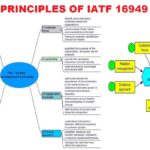
- The Evolution of IATF 16949: The Automotive Quality Standard

- Top Interview Questions Related to SPC ,Cp and Cpk
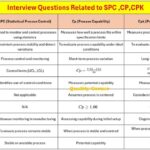
- Difference Between Purchase and Procurement
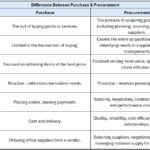
- Master Your Job Interview: Top 70 Common Interview Questions and Answers

- What Is Standard Deviation ?

- Top Interview Questions and Answers on SPC
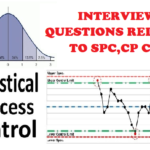
- Top 20 Interview Questions For Customer Quality Manager ?



